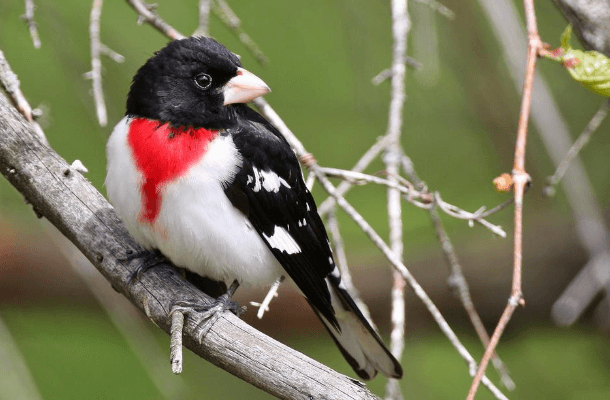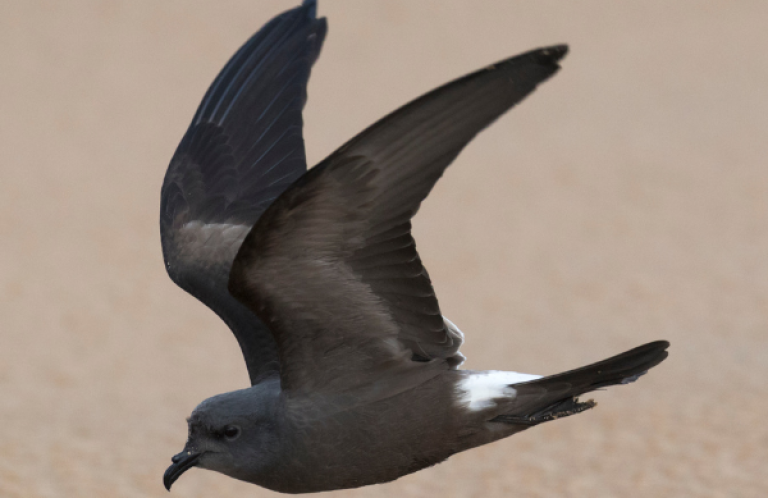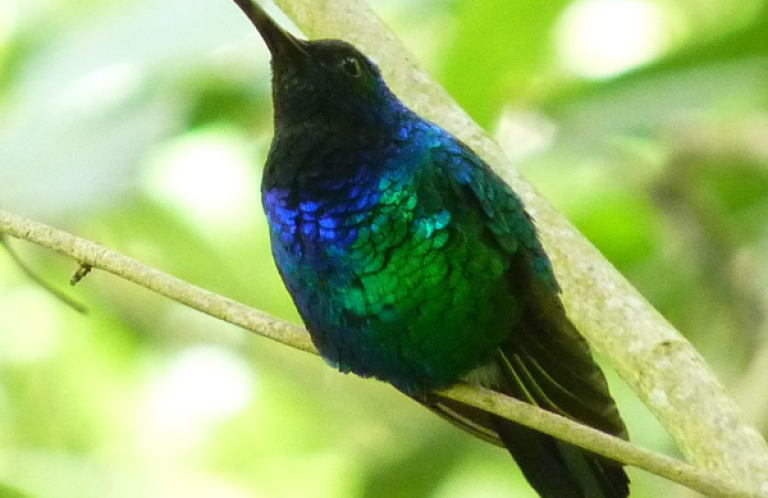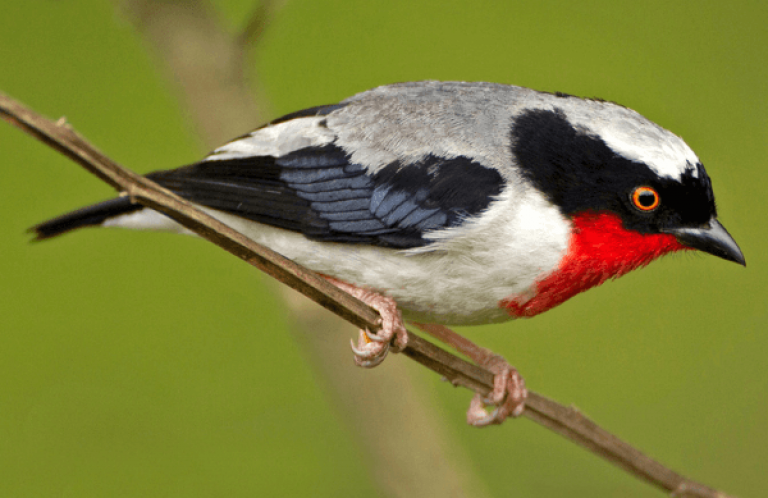Migratory Birds Get Another Major Funding Boost in House Interior Bill

Rose-breasted Grosbeak and other neotropical migratory bird species will benefit from additional funding and support in the House Interior Appropriations Bill for 2021. Photo by Betty Rizzotti
Programs conserving migratory birds and other wildlife received significant funding increases in the FY 2021 House Interior Appropriations bill. When enacted, key bird conservation programs will receive a $15 million boost, building on a $10 million increase in the FY 2020 bill. Important guidance is also provided in the bill to federal agencies to reduce bird collisions at federal buildings, to enforce the Migratory Bird Treaty Act, and to eliminate mosquitoes that are decimating bird populations on Hawaii.
“We appreciate that the House Interior Subcommittee proposed to make important new investments to benefit birds,” said Jennifer Cipolletti, Director of Conservation Advocacy for American Bird Conservancy (ABC). “Our thanks to Chairwoman Betty McCollum and Ranking Member David Joyce for producing an Interior bill that recognizes we have lost 3 billion birds from North America, and now need to do something about it.”
The Migratory Bird Joint Ventures, regional partnerships managed by the U.S. Fish and Wildlife Service that identify conservation priorities and carry out projects to reverse population declines of at-risk bird species, will receive a $1.5 million increase. The Joint Ventures, several of which are led by ABC, are essential to address the conservation needs of migratory birds. Since the program's inception in 1986, Joint Ventures have conserved over 22 million acres of critical habitat for wildlife.
The bill maintains funding for the Neotropical Migratory Bird Conservation Act (NMBCA) at $4.9 million, retaining a million-dollar increase in this year's budget. The NMBCA is a matching grant program that funds projects to conserve birds that breed in or migrate through the United States and Canada and spend the nonbreeding season in Latin America and the Caribbean.
State of the Birds Activities, dedicated to arresting the bird extinction crisis in Hawaii, will receive an added $250,000 for a total of $3.5 million. The bill also proposed a substantial $10.75 million increase for State and Tribal Wildlife Grants, and $2 million more for invasive species strike teams to protect National Wildlife Refuges.
The Greater Sage-Grouse, which is in severe decline, will continue to benefit from $72 million in conservation funding and Committee requests for agencies to use native seed for restoration efforts, and for the U.S. Geological Survey to conduct a scientific assessment of the birds' population size and viability.
“We're very pleased to see strong support in the bill for recovering Greater Sage-Grouse, including dropping a rider preventing Endangered Species Act protection for the grouse,” said Steve Holmer, Vice President of Policy at ABC. “It's also heartening to see that the bill omits language from last year's spending agreement that promoted ammunition and fishing sinkers made with lead. This dangerous toxin causes the needless poisoning of an estimated 16 million birds each year.”
A large coalition of over 150 conservation groups, including American Bird Conservancy, Cornell Lab of Ornithology, Defenders of Wildlife, and National Audubon Society, was active in advocating for these spending increases to benefit birds.
However, the House Interior Appropriations Committee report was marred by a provision encouraging logging of mature forests that are now protected by the Northwest Forest Plan. Restoration of the region's old-growth forest ecosystem is essential to recover declining populations of the threatened Marbled Murrelet and Northern Spotted Owl.
“We are disappointed by the Northwest Forest Plan language, which would diminish a national treasure by logging older forests, and in so doing, set back recovery of the Marbled Murrelet and Northern Spotted Owl,” said Holmer.
###
Media Contact: Jordan Rutter, Director of Public Relations, 202-888-7472 | jerutter@abcbirds.org | @JERutter
Expert Contact:Steve Holmer, VP of Policy, 202-888-7490 | sholmer@abcbirds.org
American Bird Conservancy is a nonprofit organization dedicated to conserving birds and their habitats throughout the Americas. With an emphasis on achieving results and working in partnership, we take on the greatest problems facing birds today, innovating and building on rapid advancements in science to halt extinctions, protect habitats, eliminate threats, and build capacity for bird conservation. Find us on abcbirds.org, Facebook, Instagram, and Twitter (@ABCbirds).


















































